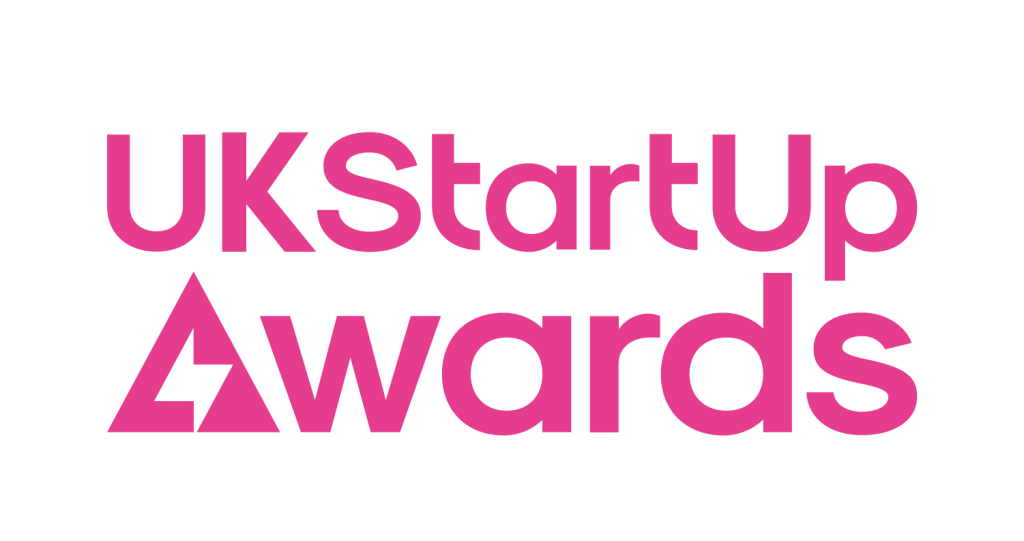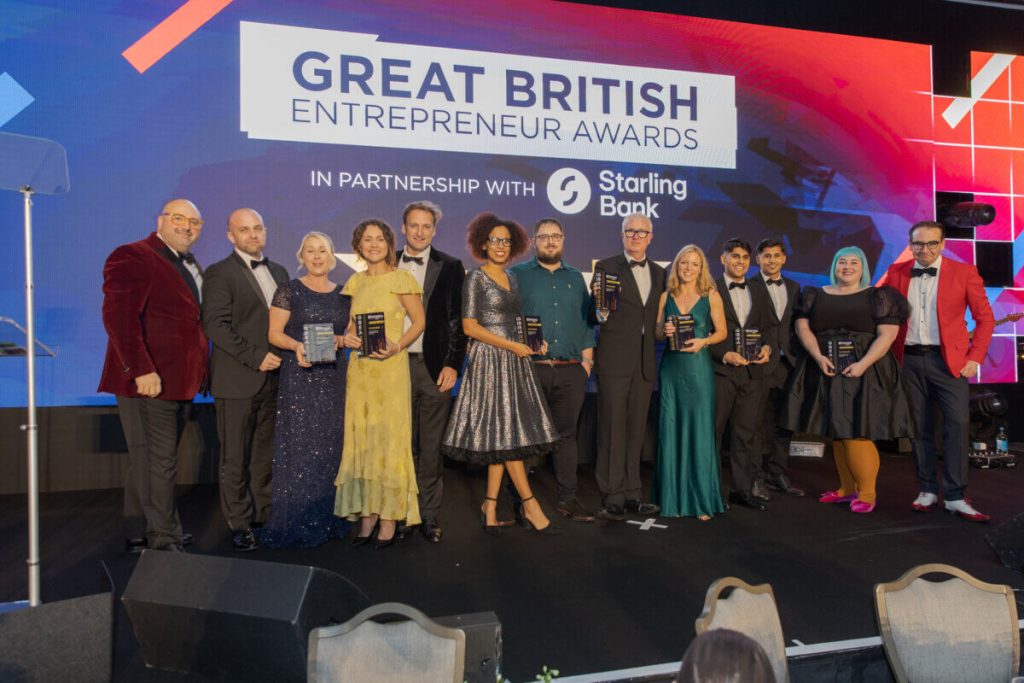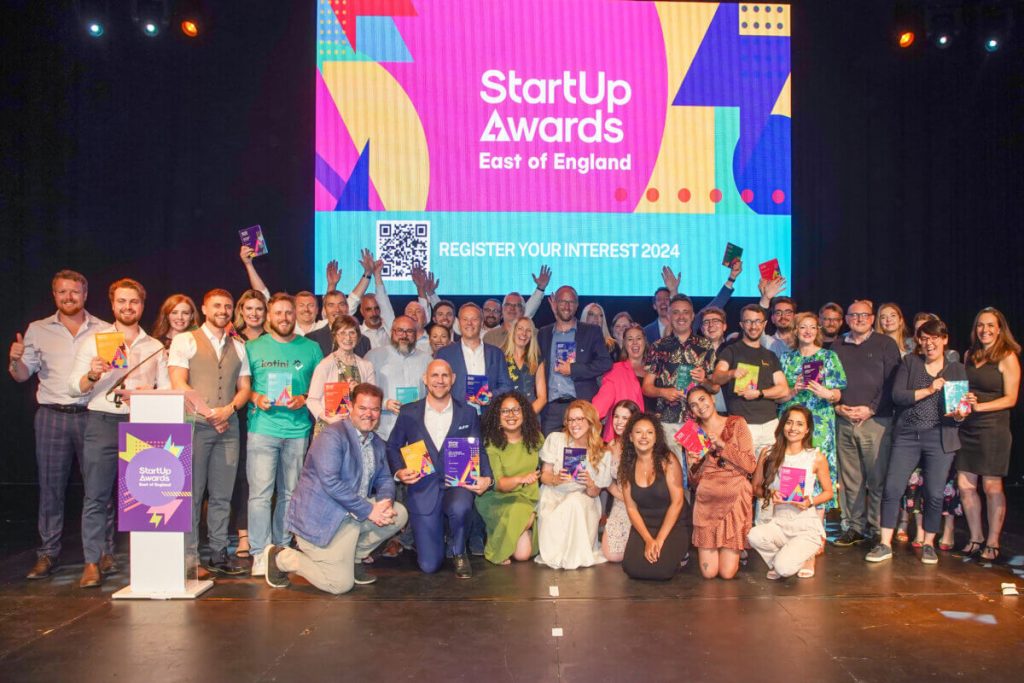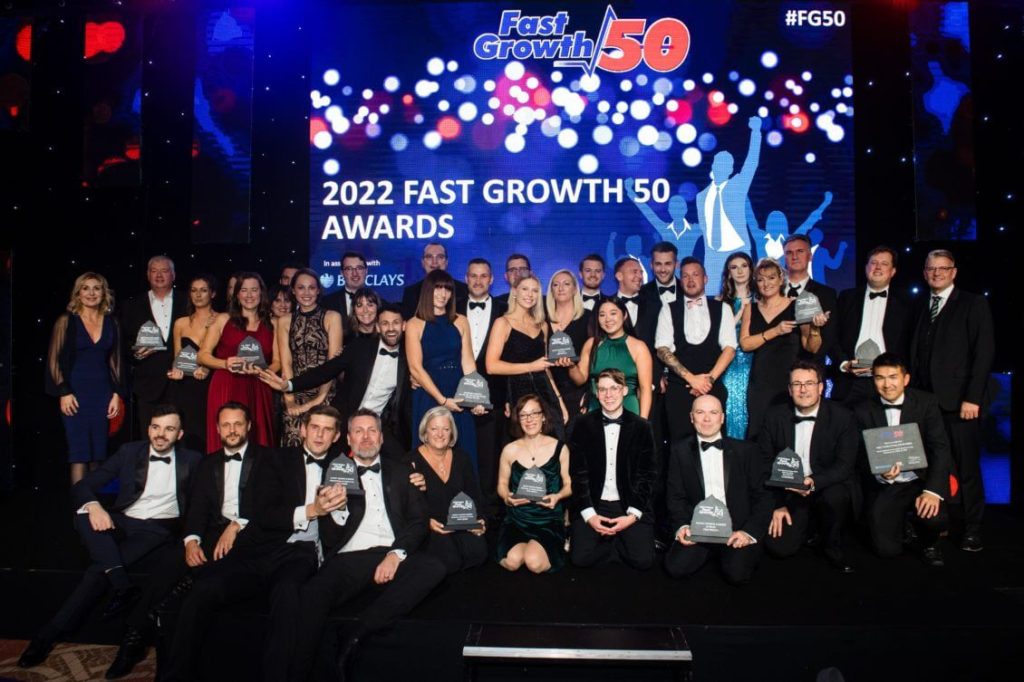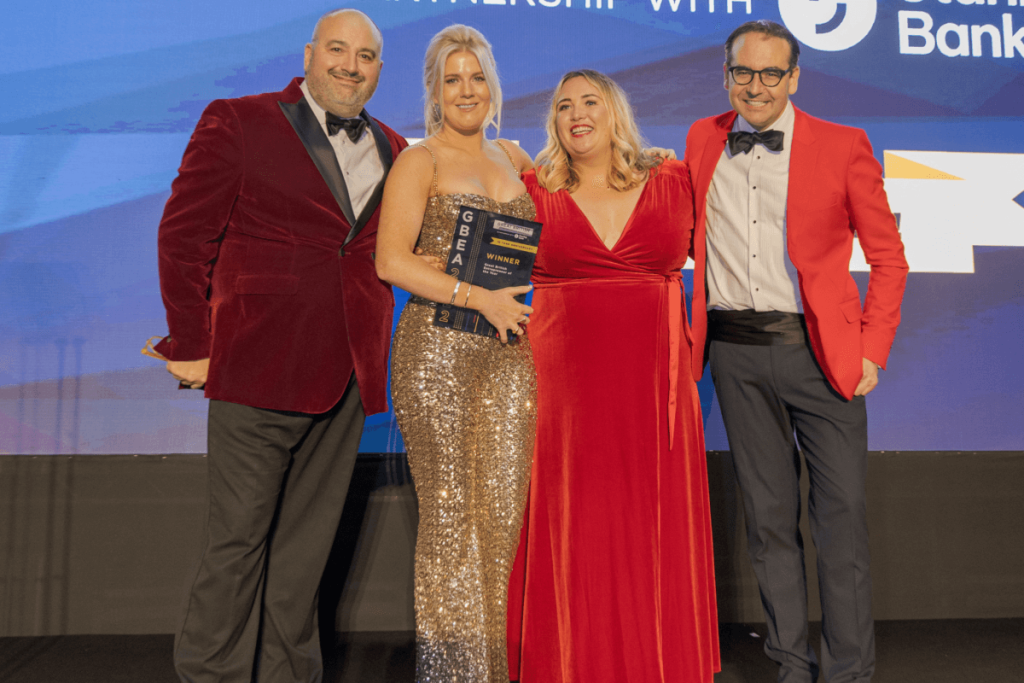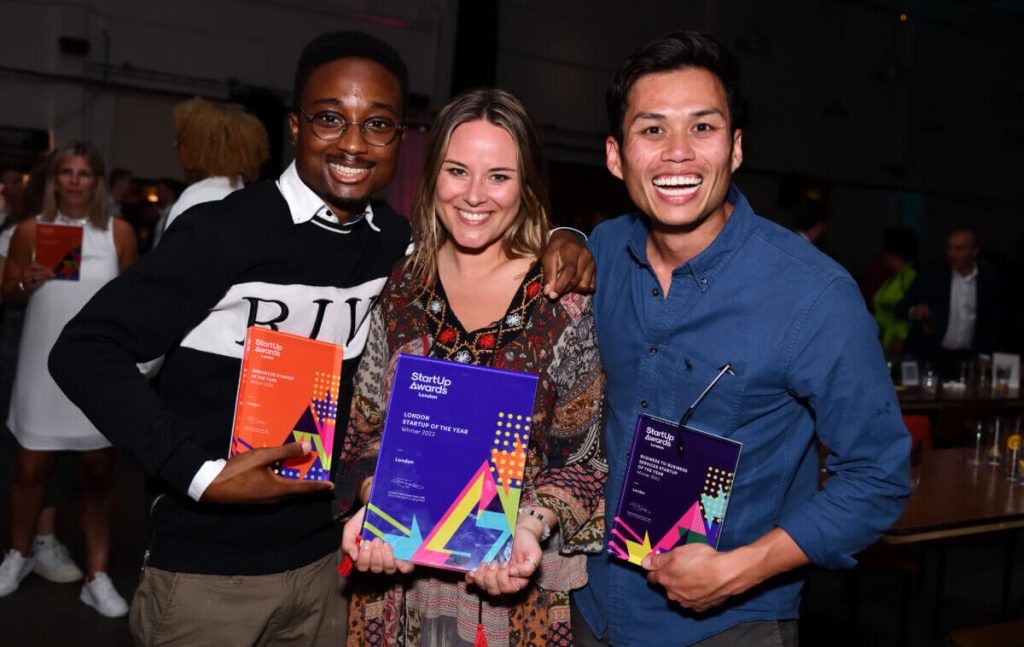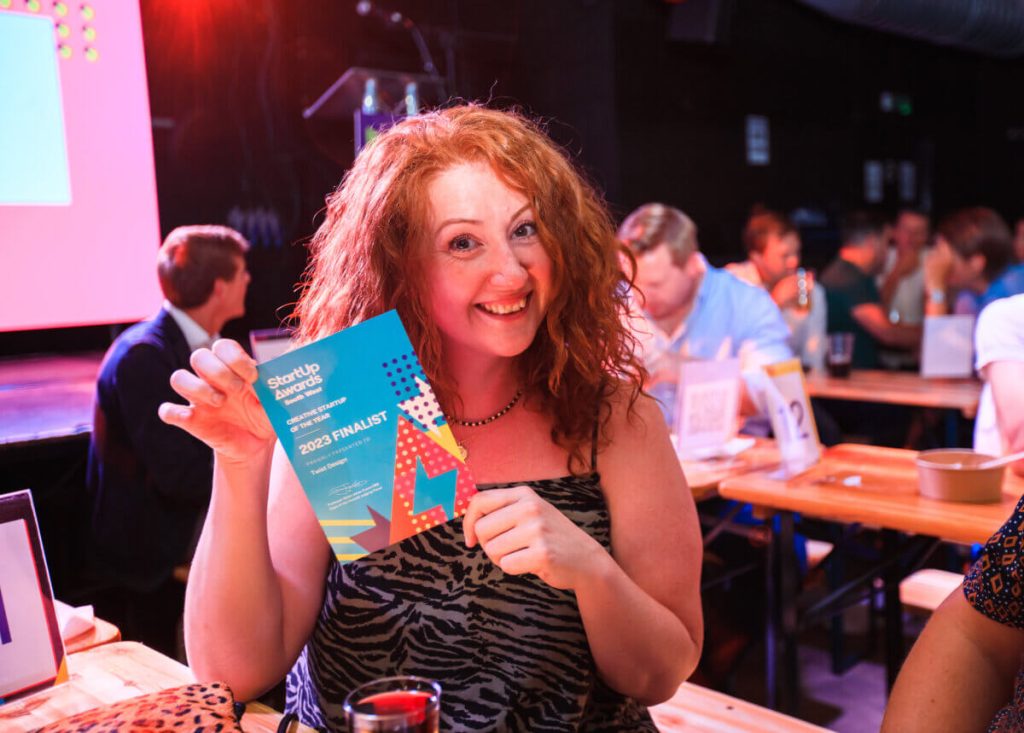We are delighted to support social enterprise, Parallel, as one of our charity partners, to help spread awareness of the amazing work they are doing to support the disabled community and disabled entrepreneurs, through their annual Purple Sock Day.
Spearheaded by founder Andrew Douglass, Purple Sock Day takes place annually on 3rd December, in celebration of The International Day of Persons with Disabilities. They invite everyone to celebrate and aim to engage the nation with one, effortless, single act of united solidarity – to buy and wear a pair of their purple socks.
Andrew and the team at Purple Sock Day will be joining us at this year’s Great British Entrepreneur Awards in November to raise awareness for the charity and spread the word about their mission.
Ahead of the launch of this year’s Purple Sock Day, we caught up with Andrew to find out more about his mission, his passion for supporting people with disabilities, and what he hopes for the future of Purple Sock Day.
Firstly, can you tell us a bit about Purple Sock Day and what led you to start Parallel?
Our social mission at Parallel is to support the D/deaf, disabled, and neurodiverse communities to live life to the full in mainstream society. I don’t want our activities and campaigns to be a burden on the public purse, so we try and be innovative, whilst remaining true to our spirit of ‘No Limits Living.’
I wanted to create a simple act of mass participation across the UK, for The International Day of Persons with Disabilities, which would not only raise positive awareness for disability inclusion but also serve as a wider public-facing campaign that could generate tangible and sustainable social impact to benefit the disabled business community.
So, why socks?
For me, putting on a pair of socks is a daily routine for most people, so Purple Sock Day was born – purple is the colour associated with disability.
I wanted our socks to be high quality and sustainable, so we partnered with BAM, who were one of the early pioneers of making clothing from bamboo. Through this partnership, we also manage to keep our socks at an affordable price for most people (£6 per pair) and our socks are sold via their website. The social impact is created by setting aside 50% of our proceeds into a Purple Sock Fund, which is used to support budding disabled entrepreneurs.
We also work with Hatch Enterprise, a brilliant charity that specialises in supporting under-represented founders, to oversee and deliver programmes the fund can underwrite. The campaign is also great fun, as most people will share pictures or films of them wearing their purple socks, which also helps amplify our positive messaging.
According to statistics by the age of twenty-six, disabled people living in the UK are four times more likely than other people to be out of work – can you give us some insight into why this is?
Disabled people have an employment rate that is about 28% lower than that of people who are not disabled. This difference is often referred to as the disability employment gap and is one of the biggest social problems in the UK.
There are many symptomatic reasons for this, such as discrimination, inaccessible workplaces and inflexible working hours or conditions. But there are also deeper-rooted systemic causes. For example, barriers to the education system – Disabled students are less likely to continue their degrees, graduate with a good degree, and progress onto a highly skilled job or further study. There is also a lack of good quality accessible homes in the private sector, which can support independent living. Many disabled people are unable to take up employment, as they cannot find living accommodations within a reasonable distance of their place of work. Unreliable, inconsistent, and inaccessible transport infrastructure is also a huge barrier.
Can you offer any solutions on how businesses can be more accessible to people with disabilities?
With regard to accessibility solutions for businesses, where do you start? And for many businesses, that is exactly the problem, which often defaults to just doing nothing.
The easiest starting point is all down to attitude and a little bit of knowledge. Instilling an open-minded, patient, flexible, informed, and empathetic culture is the foundation of accessible environments and experiences.
When it comes to disability inclusion or accessibility, I am a big advocate of ‘done is better than perfect.’ Just start somewhere – perhaps just initially focus on one aspect of disability, such as neurodiversity, D/deaf or hearing loss, physical disability, blind or partially sighted or learning disability – depending on the variety of skillsets you need or lived experience.
Fifteen per cent of disabled people are self-employed compared with 14 per cent of the general population. But do you think there is more that we could be doing to encourage entrepreneurship for disabled people in the UK and where should this support come from?
Absolutely! Many disabled people turn to self-employment because of not being able to find employment or having a poor experience of being employed. Instead of this being a default, more can be done to spotlight the exciting opportunity and career fulfilment that entrepreneurship can bring. In my experience, there is no shortage of disabled business talent with great ideas!
To unlock this huge talent pool, I think there is an important role for the Government. Many disabled people are reliant on state benefits, such as Employment and Support Allowance, Personal Independence Payments, or Blind Persons Allowance. Starting up a business or even operating a side hustle can jeopardise these payments, which is unique to budding disabled entrepreneurs, and most disabled people are unwilling to take the risk.
So, what can be done to solve this problem?
Maintaining state benefits for budding disabled entrepreneurs would remove this barrier and encourage more entrepreneurs to bring their ideas to market and set up businesses. There could be an ‘incubation period’ of 12 months, from the moment a business is registered. At the end of the term, depending on the success of the business, it can be closed, or state payments phased out depending on the turnover/profit of the business. I think this can be a win/win, as it will fuel disabled entrepreneurship and allow opportunities for disabled people to come off the benefits system, who desperately want to work.
I also believe that disabled-owned businesses will be more likely to employ disabled people, which can also positively tackle the Disability Employment Gap. It can also allow the government to track disabled-owned businesses, which are not currently categorised in the wider business mix across the UK.
What you are doing with Purple Sock Day is truly inspiring – can you let us know of any exciting milestones or achievements you have made so far?
Thank you! We are only in the second year of our campaign, but I was so happy with our first year – selling 8,500 pairs of socks and attracting over forty corporate supporters of all sizes. I was also happy that we also managed to cut across a variety of business sectors.
A particular highlight was a sport, where London Irish received special dispensation to play a premier match wearing purple socks, which their kit manufacturer made for them. The match was televised – raising wider awareness – with the Purple Sock Day campaign promoted to fans, local communities, and sponsors, which also helped generate incremental funds for the London Irish Foundation, whilst also highlighting the great work the club is doing to promote disability inclusion across the community.
And do you have any success stories from some of the entrepreneurs you have worked with?
From a modest start to our first-year campaign, we have been able to fund a number of disabled entrepreneurs to take part in programmes, which are run by our partner Hatch Enterprise.
I am particularly excited and proud of Sylvia Mac and her new venture, Love Disfigure Talent, which she will launch soon. Sylvia is a remarkable lady – a child burns survivor, who has overcome her own depression, anxiety, and post-traumatic stress disorder to be a powerful campaigner to help people live with scarring and disfigurements.
The Purple Sock fund helped Sylvia complete a Launchpad course at Hatch Enterprise, to help her develop her idea and business plan. Her new business represents and manages disabled models and talent; she already has seventeen clients on her roster.
We’re so excited to be supporting you this year and can’t wait to see the charity’s growth! So, what do you hope for the future of Purple Sock Day?
My lofty ambition for Purple Sock Day has always been to be the ‘red nose day’ for disability. I mean this in the sense of making this a truly national campaign, which can be fun, whilst raising positive awareness for disability inclusion and generating significant funds to enable ongoing support for disabled entrepreneurs, which is not a burden to the public purse. In the UK, we want to double our sales year on year over the next 5 years. Furthermore, as the name suggests, The International Day of Disabled People is also global, so our plans will be to extend Purple Sock Day internationally too.
And, what exciting projects do you have coming up that we need to know about?
Other projects include our award-winning flagship event, which we are aiming to make our national celebration of Disability Inclusion and Wellbeing. We also have a new home for 2023, where we will be bringing our event to Windsor Great Park. Our inaugural Parallel Windsor will take place on Sunday 02 July. Save the date!
This year’s exclusive Purple Sock Day sock launches October 31st, and find out more and purchase your socks here.
